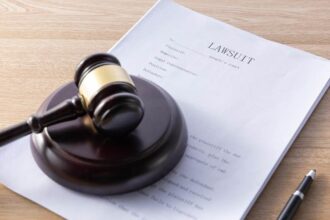In today’s interconnected financial world, the importance of the Legal Entity Identifier (LEI) cannot be overstated. This unique identifier is crucial for legal entities involved in financial transactions, serving as a linchpin of transparency and security. The focus here is on the critical aspect of timely LEI renewal – an essential task for financial compliance yet often overlooked. This is where the LEI Register plays a pivotal role in ensuring up-to-date compliance.
Understanding the LEI’s Global Impact
The LEI is a 20-character, unique alphanumeric code uniquely identifying financial market legal entities. Instituted in response to the 2008 financial crisis, LEIs enhance transparency in financial transactions, enabling better risk assessment and reducing financial fraud.
The Imperative of LEI Renewal
LEIs are not permanent; they require annual renewal. This process ensures that the information linked to each LEI remains accurate, thus maintaining the integrity of the global financial system.
Compliance Continuity
Regular LEI renewal is a regulatory requirement. An active LEI is necessary for transactions and reporting in financial markets worldwide. Neglecting LEI renewal can lead to non-compliance, inviting legal implications and operational disruptions.
Accuracy of Data
Renewal involves verifying and updating an entity’s registration details. Accurate data is essential for the LEI system’s effectiveness, as it ensures reliability in financial transactions.
Smooth Global Transactions
For entities engaged in international trade, a valid LEI often facilitates unhindered participation in the global financial ecosystem, making timely renewal crucial.
Enhanced Risk Management
An active LEI is key for clear counterparty identification and vital for finance risk assessment. Timely renewal of the LEI contributes significantly to effective risk management strategies.
Market Integrity
The LEI system upholds financial market transparency and trust. Timely LEI renewal is crucial in maintaining this level of integrity and stability.
The LEI Renewal Process
Renewing an LEI involves contacting the issuing organisation, updating information in the LEI register, and paying a renewal fee. This process, while straightforward, is essential for maintaining an active LEI status.
Renewal Steps
- Contacting the Issuer: Entities must initiate the renewal process with their LEI issuer, typically online.
- Data Verification and Update: It’s important to review and update all relevant entity details.
- Renewal Fee: Payment of the renewal fee is a final step in the process.
Timely Renewal
Keeping track of the LEI’s expiration date is vital. Many issuers provide reminders, but it remains the entity’s responsibility to renew on time.
Challenges in LEI Renewal
Awareness and Comprehension
A major challenge is the lack of awareness about the significance of LEI renewal. Entities might neglect this due to insufficient understanding of the LEI’s role.
Managing Multiple Renewals
For organisations with several LEIs, tracking multiple renewal dates can be challenging. Automated systems or compliance management tools can help.
Global Renewal Complexity
Entities operating globally may face complexities in renewing LEIs across different jurisdictions, necessitating understanding various regional requirements.
Looking Ahead: The Future of LEI Renewal
The importance of LEIs and their timely renewal is set to increase as financial regulators globally recognise their value in ensuring market transparency and stability.
Technological Enhancements
Future advancements could streamline the renewal process, with technology playing a key role in simplifying and automating renewals.
In Conclusion
Timely renewal of the LEI is critical to a robust financial system, ensuring compliance, accuracy, and integrity in global finance. As financial transparency and interconnectedness continue to grow, LEI’s role in fostering market trust and stability becomes increasingly vital. Entities must view LEI renewal as a regulatory requirement and an integral part of responsible financial conduct, essential for operating in today’s global financial landscape.















